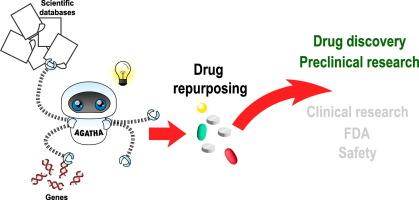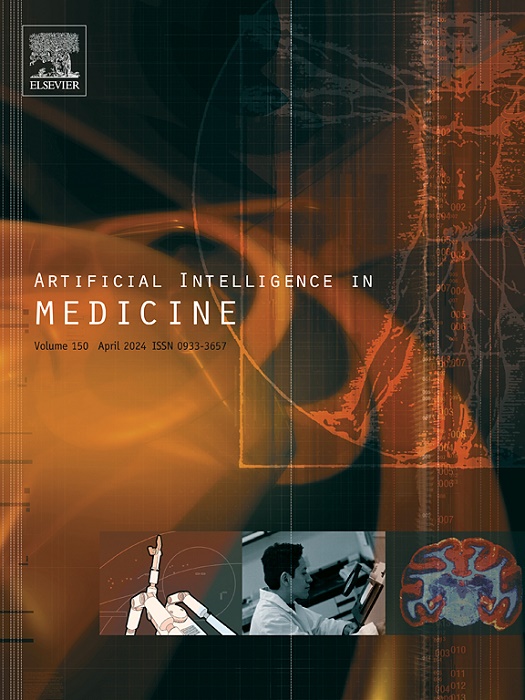AI-based mining of biomedical literature: Applications for drug repurposing for the treatment of dementia
IF 6.2
2区 医学
Q1 COMPUTER SCIENCE, ARTIFICIAL INTELLIGENCE
引用次数: 0
Abstract
Neurodegenerative diseases like Alzheimer's, Parkinson's, and HIV-associated neurocognitive disorder severely impact patients and healthcare systems. While effective treatments remain limited, researchers are actively developing ways to slow progression and improve patient outcomes, requiring innovative approaches to handle huge volumes of new scientific data. To enable the automatic analysis of biomedical data we introduced AGATHA, an effective AI-based literature mining tool that can navigate massive scientific literature databases. The overarching goal of this effort is to adapt AGATHA for drug repurposing by revealing hidden connections between FDA-approved medications and a health condition of interest. Our tool converts the abstracts of peer-reviewed papers from PubMed into multidimensional space where each gene and health condition are represented by specific metrics. We implemented advanced statistical analysis to reveal distinct clusters of scientific terms within the virtual space created using AGATHA-calculated parameters for selected health conditions and genes. Partial Least Squares Discriminant Analysis was employed for categorizing and predicting samples (122 diseases and 20,889 genes) fitted to specific classes. Advanced statistics were employed to build a discrimination model and extract lists of genes specific to each disease class. We focused on repurposing drugs for dementia by identifying dementia-associated genes highly ranked in other disease classes. The method was developed for detection of genes that shared across multiple conditions and classified them based on their roles in biological pathways. This led to the selection of six primary drugs for further study.

基于人工智能的生物医学文献挖掘:用于治疗痴呆症的药物再利用的应用
神经退行性疾病,如阿尔茨海默病、帕金森病和艾滋病毒相关的神经认知障碍,严重影响患者和医疗保健系统。虽然有效的治疗方法仍然有限,但研究人员正在积极开发减缓进展和改善患者预后的方法,这需要创新的方法来处理大量新的科学数据。为了实现生物医学数据的自动分析,我们引入了AGATHA,这是一个有效的基于人工智能的文献挖掘工具,可以导航大量的科学文献数据库。这项工作的总体目标是通过揭示fda批准的药物与感兴趣的健康状况之间的隐藏联系,使AGATHA适应药物再利用。我们的工具将PubMed同行评议论文的摘要转换为多维空间,其中每个基因和健康状况都由特定的度量表示。我们实施了先进的统计分析,以揭示使用agatha为选定的健康状况和基因计算参数创建的虚拟空间中不同的科学术语集群。采用偏最小二乘判别分析对符合特定类别的样本(122种疾病和20,889个基因)进行分类和预测。采用高级统计学方法建立了判别模型,并提取了每个疾病类别的特异性基因列表。我们专注于通过识别在其他疾病类别中排名较高的痴呆症相关基因来重新利用痴呆症药物。该方法用于检测在多种情况下共享的基因,并根据它们在生物途径中的作用对它们进行分类。这导致选择了六种主要药物进行进一步研究。
本文章由计算机程序翻译,如有差异,请以英文原文为准。
求助全文
约1分钟内获得全文
求助全文
来源期刊

Artificial Intelligence in Medicine
工程技术-工程:生物医学
CiteScore
15.00
自引率
2.70%
发文量
143
审稿时长
6.3 months
期刊介绍:
Artificial Intelligence in Medicine publishes original articles from a wide variety of interdisciplinary perspectives concerning the theory and practice of artificial intelligence (AI) in medicine, medically-oriented human biology, and health care.
Artificial intelligence in medicine may be characterized as the scientific discipline pertaining to research studies, projects, and applications that aim at supporting decision-based medical tasks through knowledge- and/or data-intensive computer-based solutions that ultimately support and improve the performance of a human care provider.
 求助内容:
求助内容: 应助结果提醒方式:
应助结果提醒方式:


